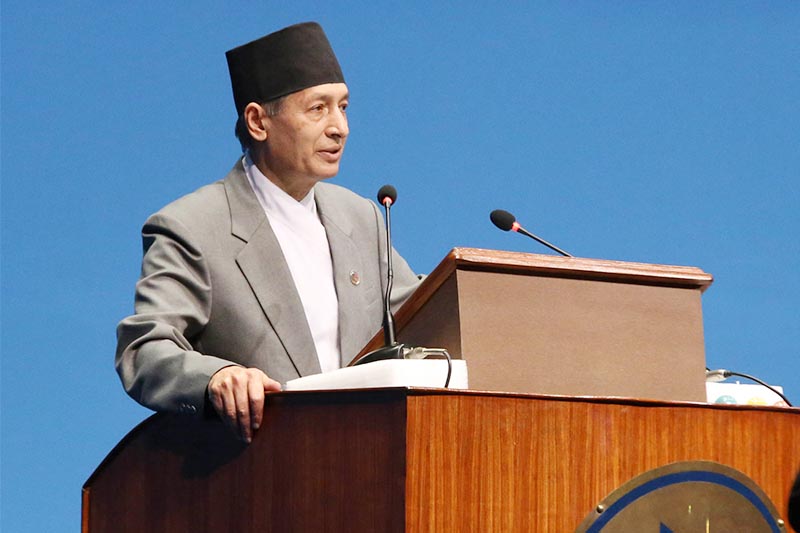FinMin highlights constraints of budget spending
Kathmandu, July 22
“Government's expenses, mainly capital expenses rise in the last quarter of the fiscal because the payments are issued based on revenue collection,” he said, adding, “Revenue collection surges only after the first half.”
Khatiwada emphasised that though payments for development works started being issued in the third quarter and last quarter based on the performance of the works, it does not mean that development works were carried out in the last hour. “Contractors who completed the works in the third quarter might have received payments in the last quarter,” he said.
The finance minister, however, admitted that contractors themselves cause delays in site mobilisation and start working in the third quarter and last quarter and deliver substandard works in a rush to finish work on time to claim the payments.
Finance Minister Khatiwada also stated that the government will soon address the structural constraints of budgetary spending. As per the current provision, taxpayers have to file 40 per cent of the annual income tax estimation by the end of the first half of the fiscal. The government's revenue starts to surge along with the collection of the first tranche of income tax and the payments to the contractors of the development works are released.
Out of the Rs 203 billion spent in between mid-June and mid-July (last month) of the previous fiscal, around Rs 73 billion was spent as payments for development works or capital expenses.
To avoid creating pressure on the federal (central) government's treasury, the federal government has provisioned to transfer the equalisation grant to the provincial and local level governments based on the performance in the beginning of every quarter after the federal government transfers one-fourth of the equalisation grant in the beginning of the fiscal, according of Ministry of Finance officials.
Another structural problem is lack of project preparedness of projects included in the budget. Khatiwada shared his experience during the formulation of budget 2018-19. He mentioned that he tried to avoid projects without sufficient ground work like detailed project report, land acquisition and other preparatory works. However, he stated that he faced intense pressure from ministers to include projects of their respective ministries in the budget.
“Ministries select projects without any preparation,” he said, adding, “They should know that just announcing projects is not sufficient to implement them. They should at least understand the basics of project implementation.”
Despite facing criticism, the finance minister said that he trimmed down the projects that sorely lacked preparation. “The concept of a project bank must be established and only matured projects should be included in the budget. We have to develop guidelines and implementation modality, bidding documents, and enhance the capacity of implementing agencies along with the basic preparatory works like feasibility study, detailed project report, environmental impact assessment, land acquisition, right of way clearance, among others,” the finance minister reiterated.
Similarly, lack of inter-agency coordination is another major structural constraint for budgetary spending. “For instance, we are facing a problem in the Chabahil-Jorpati road section as the agency that designed the road did not take sewerage into account, which is due to lack of inter-agency coordination,” he said.
The finance minister further stated that proper execution of the budget is a collective effort of all stakeholders and there must be strict monitoring to ensure the quality of works.






